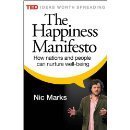Matthew Yglesias's Blog, page 2415
February 18, 2011
Shakespeare and Copyright
Your bizarre argument of the day is Scott Turow, Paul Aiken, and James Shapiro invoking Shakespeare in defense of copyright maximalism. You'd think an essay on the subject of copyright and Shakespeare might take note of the fact that there was no copyright law anywhere in the world until England's 1709 Statute of Anne, almost 100 years after Shakespeare's death.
Some other things to consider: Shakespeare's storylines? Largely ripped off from other authors. Merchant of Venice, etc. would all be illegal today. Shakespeare-derived works? West Side Story would be illegal had today's standards been around in the Bard's time. Think of the children? Is it a good thing or a bad thing that a kid today can download a copy of "Julius Caesar" for free? Would the world be a better or a worse place if every high school performance of Macbeth required you to pay royalties to Shakespeare's heirs? The public domain is an excellent thing. The Bard put it to good use in constructing his works, and artists in subsequent centuries have put the public domain status of Shakespeare's material to good use themselves. But thanks to endless retroactive copyright extensions, nothing new will ever enter the public domain. It's a problem.


The Happiness Manifesto

I made Nic Marks' "The Happiness Manifesto" my second-ever Kindle single. I'm basically in agreement with what he has to say, but like with most writing on this subject the problem is that the most insightful point comes in the form of quoting a Bobby Kennedy speech that's over 40 years old:
Too much and for too long, we seemed to have surrendered personal excellence and community values in the mere accumulation of material things. Our Gross National Product, now, is over $800 billion dollars a year, but that Gross National Product – if we judge the United States of America by that – that Gross National Product counts air pollution and cigarette advertising, and ambulances to clear our highways of carnage. It counts special locks for our doors and the jails for the people who break them. It counts the destruction of the redwood and the loss of our natural wonder in chaotic sprawl. It counts napalm and counts nuclear warheads and armored cars for the police to fight the riots in our cities. It counts Whitman's rifle and Speck's knife, and the television programs which glorify violence in order to sell toys to our children. Yet the gross national product does not allow for the health of our children, the quality of their education or the joy of their play. It does not include the beauty of our poetry or the strength of our marriages, the intelligence of our public debate or the integrity of our public officials. It measures neither our wit nor our courage, neither our wisdom nor our learning, neither our compassion nor our devotion to our country, it measures everything in short, except that which makes life worthwhile.
Over the long run, I'd say the quality of our children's education does feed back into GNP/GDP in a pretty clear way. But besides that quibble, this is dead on. What's less clear is how far we've advanced from this point to thinking up smart policy implications. The problem with underplaying the importance of growth in rich countries is actually well indicated by this quotation from Marks who says we ought to:
Create good work … Create a well-being economy based on good work, good work in the right quantities. Unemployment has terrible effects on the well-being of the unemployed, and job insecurity affects everyone. Work can profoundly affect our well-being by providing us with purpose, challenge, and opportunities for social relationships; it is a meaningful part of our identity. Some people have little or no work; they need support to help find more work. Others overwork and need to be encouraged to reclaim their time for other purposes that would bring them more happiness. Governments should systematically promote well-being at work, highlighting best practice and helping to redistribute work throughout the economy more evenly.
The problem is that as long as technology continues to improve, then some workers will find themselves able to produce more goods and services than is currently the case. This will lead to some job losses. If it also leads to economic growth, then it will also lead to job creation and over time you have no increase in unemployment but you do have an increase in material living standards. Absent growth, however, technological improvement will only lead to idleness. Even if work-sharing can be made to work as a solution (and I think there are real limits to this strategy) you really are going to start running low on work. The right solution to this is to organize society along the lines of a utopian commune where people engage in hobbyist production and possessions flow "from each according to his ability to each according to his means." But nobody's been able to make small voluntary communes stable and efforts to use coercion to organize large-scale non-market on an enduring basis have not exactly had utopian results.
I think this is an issue worth taking seriously. Owen and Fourier were on to something. But nobody's really worked it out. For now capitalism + social insurance + quality public services + macroeconomic stabilization seems to be about the best we can do.


Wisconsin and the Rules
KK writes:
As a staunch supporter of changing the filibuster and the elections have consequences front, wouldn't now be an excellent time to for you to say, I think the Wisconsin Gov is completely wrong but they the votes so we should stop playing games by blocking this legislation. If this is as bad as you (and I) think it is, then Walker will get booted next election and Governor Feingold can reinstate union rights.
I think the idea that believing the rules should be changed commits you to the view that someone should unilaterally disarm is nutty. I haven't made a study of Wisconsin parliamentary procedures, but if there's a case for changing them then the argument would be that the process should be changed. As long as procedure is what it is, then people should use it.
For the record, though, I think what's happening in Wisconsin is more like a "classic" filibuster than a modern-style routine supermajority. The Democratic caucus of the State Senate can't hold out forever, nor can they pull this every time Governor Walker proposes a bill they don't like. What they can do is slow things down and try to see if public opinion swings around to their side.


Cedar Rapids / The Wordy Shipmates

Pretty funny movie, especially if you're a fan of The Wire. Definitely recommended.
Probably the best way to think of this film is that it's about the protestant ethic versus the "greed is good" as self-conceptions of the capitalist. The movie gives you a feel-good story about this in the end, but it's not particularly convincing.
Relatedly, I listened to the audiobook version Sarah Vowell's The Wordy Shipmates (it's got an all-star cast) about the Massachusetts Bay Colony. It really brings home the extent to which the founders of New England were oddball religious fanatics, and also quite a bit different from the religious fanatics of today's bible belt (she's very good on this point). The point of being successful was that success was a sign that you were a "visible saint," one of the saved, and that your success was a reward for good conduct. That of course could be merely self-serving, but if you take it seriously there's no point to ill-gotten gains. And there's plenty of evidence that Puritans mostly did take their own ideas very seriously.


Egyptian Military Tightening Economic Grip

The Egyptian military emerged as one of the good guys in the recent political unrest, refusing the shoot at demonstrators and ultimately forcing Hosni Mubarak to step down. But the Mubarak regime was, in its inception, a military dictatorship launched decades ago by Gamal Nasser. And over the years, the Egyptian armed forces have worked themselves into a privileged position in the economy. David Kirkpatrick reports that one thing the interim military regime is doing is moving to further entrench that economic control:
"Protecting its businesses from scrutiny and accountability is a red line the military will draw," said Robert Springborg, an expert on Egypt's military at the Naval Postgraduate School. "And that means there can be no meaningful civilian oversight."
Field Marshal Mohamed Hussein Tantawi, the minister of defense and military production who now leads the council of officers ruling Egypt, has been a strong advocate of government control of prices and production. He has consistently opposed steps to open up the economy, according to diplomatic cables made public by WikiLeaks.
And already there are signs that the military is purging from the cabinet and ruling party advocates of market-oriented economic changes, like selling off state-owned companies and reducing barriers to trade.
Obviously the phrase "market-oriented economic changes" has a certain valence in the context of domestic politics in the west. So note that the reverse of "market-oriented" in the Egyptian context is "set up by the dictatorship to reward itself and its clients" rather than, say, Social Security payments. The path to a functioning welfare state runs through democratic capitalism.


History's Greatest Monsters
Next up, we'll abolish Saturday: "Twenty-eight percent (28%) of American Adults, in fact, say there are already too many federal holidays, according to a new Rasmussen Reports national telephone survey."


Mike Huckabee On Israel

America's leading Christian Zionist politician gives his view on Jews:
He recently recalled a dinner with Jewish friends, "when I was the only goyim in the entire group."
"If you've been around a lot of Jewish people, particularly from New York, they tend to be very opinionated, very animated," he said. "I felt like I was sitting between Barbra Streisand and Woody Allen — it was really interesting; it was surreal."
And on the Jewish state:
"We had stopped by to see where Jesus was baptized, and instead there were these great-looking Israeli girls in bikinis, just showing off and flirting," he recalled.
On demographics:
"The real answer is that there's an aggressive interest in bringing Jews from around the world to the homeland," Huckabee said.
And on why there can be no Palestinian state:
"This is not a battle of borders; this is one of worldviews," he said. "It goes back to Isaac and Ishmael, and it's not going to be changed by a couple of presidents or prime ministers."
Huckabee said he views this not as a religious framework but as a historical one.
"Abraham was a very real person, and his sons were, and their offspring have fought from time immemorial to bring it to this day."
I have no particular view on whether or not Abraham was a real historical person, but trying to view present-day political disputes as mere extensions of events that occurred thousands of years in the past isn't going to have a happy ending.


Austerity in the UK

One question raised by several commenters to my post on the impossible dream of majoritarian democracy was basically "if majoritarianism is so great, how come macro stabilization policy in the UK is so bad." The answer, as briefly glossed by Paul Krugman here and laid out in greater detail by Ed Balls in the FT is that the Bank of England is the villain. Mervyn King first persuaded David Cameron that he ought to implement an austerity regime even more severe than the one the Tories campaigned on, helped get Nick Clegg to go along with it, and then campaigned in public in favor of the Coalition's disastrous fiscal policies.
Bad central banking puts political authorities in a very tough place. There's an interplay between fiscal and monetary issues. The goal of stabilization policy is to stabilize the path of overall nominal spending in the economy. Fiscal policymakers can't really push nominal spending above the path that the central bank wants it to be on. So if King says "looser fiscal policy will force me to tighten monetary policy" then you're in a tough pickle. Some folks, à la Scott Sumner, believe that the inverse of this is also true, that monetary targets are not only necessary but sufficient. It seems to me that King, Clegg, and Cameron were all counting on this being true. Most conventional New Keynesians—including Shadow Chancellor Ed Balls, Ben Bernanke, Paul Krugman, etc.—have had their doubts about this theory and actual events in the UK seem to be reenforcing this conventional wisdom. When the goal is to increase the volume of nominal spending in the economy you don't want the largest spender (to wit, the government) reducing spending and raising taxes.


On Wisconsin

Whether or not the various goings on in Wisconsin succeed in forcing Governor Scott Walker to scale back his anti-union program to some extent, I have to say that the long-term prognosis here doesn't look good to me. Private sector unions have been slowly eroding in influence for decades. It's been a profoundly long-term process that's been more or less proceeding apace since the Taft-Hartley Act in 1947. When given the shot in 2009 to pass something that would make it feasible to organize private sector workplaces again, congressional Democrats not only failed to pass the rather audacious Employee Free Choice Act, they didn't really pass anything. Then right after the Republican Party spent the better part of two years lambasting Barack Obama for trying to save the domestic automobile industry, the entire industrial midwest decided that it wanted to go all-in on electing conservative state governments. Ohio, Michigan, Indiana, Wisconsin—Republican, Republican, Republican.
Institutionally speaking public sector unions are in a much stronger position than private sector ones, so they're in better shape, but they make for a less sympathetic cause. So after sixty years in which the American mainstream has worked relentless to crush labor in the private sector we're now going to see an outpouring of columns about how of course private sector unions make sense but why bargain collectively against the public interest? The positive feedback loop of anti-union politics from here going forward seems quite clear to me. What's more, thanks to balanced budget requirements some form of state-level austerity budgeting really is necessary (the federal government is different) and drastically weakened state-level progressives will naturally be reluctant to advance 100 percent tax hike budget alternatives.
I think people should shy away from overestimating the partisan stakes here. It's true that in the very short term extirpating public sector unions will damage the finances of the Democratic Party. But the political system has a strong tendency toward equilibrium. Democrats will keep getting enough money to stay in business and will keep winning approximately half the elections. It's just that in post-union America, rich businessmen will be the only viable sources of political funding. So to an even greater extent than is the case today, politics will take the form of "culture war" battles or "sector versus sector" fights (pharmaceutical companies' support for the Affordable Care Act is probably the shape of things to come) over rents in which the fundamental interests of rich businessmen qua rich businessmen are off the table.
I think conservatives will see that the hoped-for small government benefits of all this are actually much more modest than they believe. When conservatopia arrives and kids all go to for-profit schools where they're taught by non-unionized teachers, the school operators' trade association will have all the same sometimes problematic incentives that the National Education Association has today. Heck, it'll probably even be called the National Education Association. But instead of being a "union" that promotes high levels of education spending in sometimes inefficient ways plus egalitarian social policies, it'll be a "business association" that promotes high levels of education spending in sometimes inefficient ways plus regressive social policies.


The Open Rule

To start off, let's give John Boehner credit where due. When in opposition he promised to conduct the business of the House in a more open manner, I assumed he was just operating in bad faith as House Minority Leaders always are when they promise this. So far, though, he's been true to his word.
Now let's give John Boehner less credit. I assumed he was operating in bad faith like House Minority Leaders always do because trying to operate routinely under open rules with amendments flying everywhere is crazy. My preference, I suppose, would be for parliamentary leaders to actually physically whip members of congress into line (willingness to withstand lashing being a decent proxy for preference-intensity) but barring that the House's tradition of iron-fisted rule-based discipline is a great model. I'm not sure reporters have picked up on it yet since everyone's reveling in the sheer fun of unpredictable outcomes, but this may end up creating an accidental government shutdown.
Ezra Klein writes:
The open rules are leading to a lot of ad hoc coalitions between congressional Democrats and more mainstream congressional Republicans. If these two groups get used to working with each other on small things, such as funding for police, that might help them work together on big things, such as avoiding a default or shutdown.
What if it goes the other way. Suppose you have one large bloc of Republicans who vote vote for a continuing resolution that contains less than $X in cuts. Then on the other side you have a large bloc of Democrats who won't vote for a continuing resolution that contains more than $Y in cuts. But every time Boehner brings a specific bill with $X cuts in it to the floor, ad hoc coalitions strip some $Z worth of specific items from the bill such that X-Z>Y and then the thing fails. That way instead of the big ideological standoff between the House and the White House that we've been primed to expect as a source of government shutdown, we'd get a shutdown driven by preference-cycling and perverse affection for open debate.


Matthew Yglesias's Blog
- Matthew Yglesias's profile
- 72 followers



